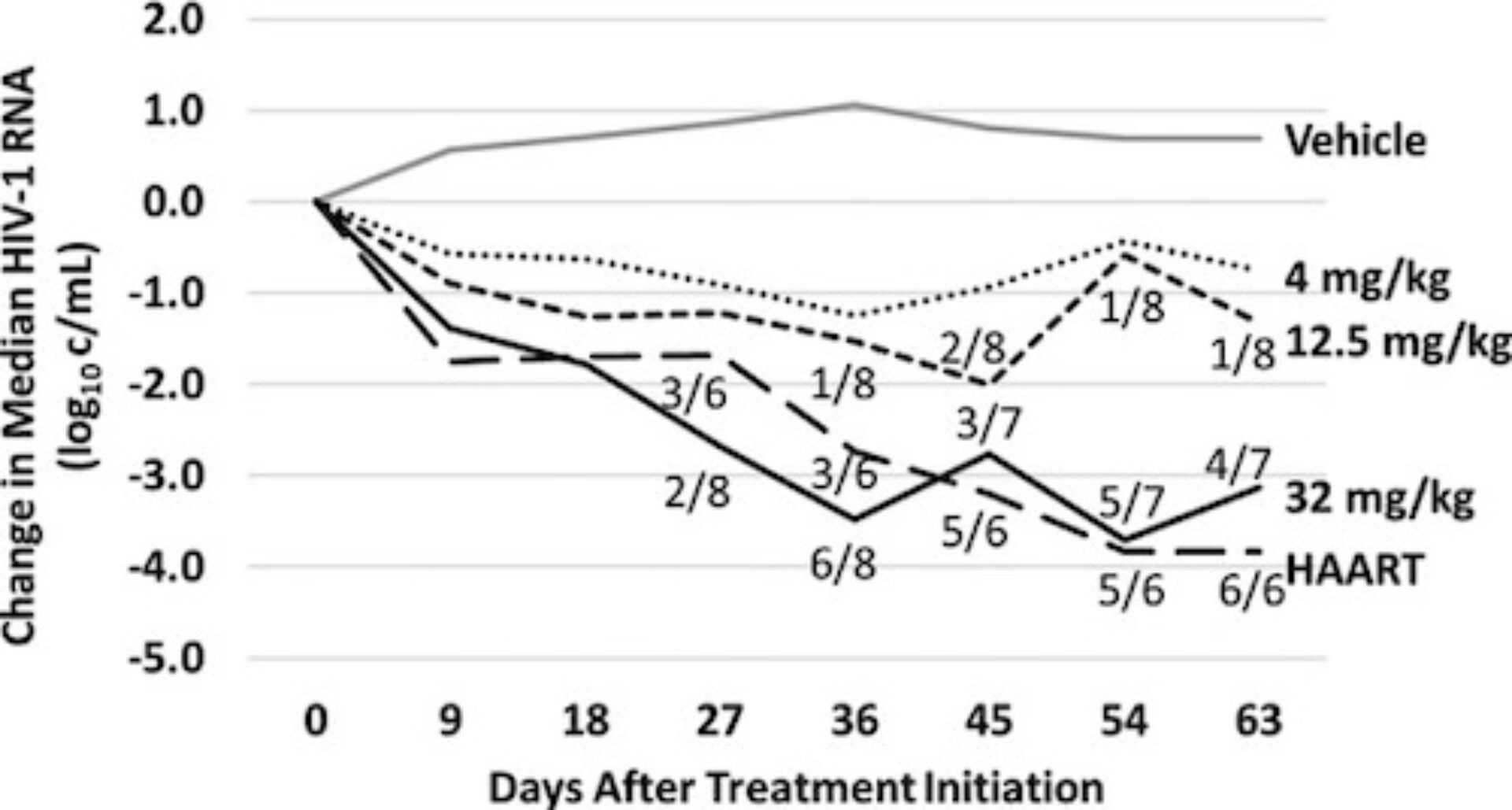Abstract
Long-acting antiretrovirals could provide a useful alternative to daily oral therapy for HIV-1-infected individuals. Building on a bi-specific molecule with adnectins targeting CD4 and gp41, a potential long-acting biologic, GSK3732394, was developed with three independent and synergistic modes of HIV entry inhibition that potentially could be self-administered as a long-acting subcutaneous injection.
Starting with the bi-specific inhibitor, an α-helical peptide inhibitor was optimized as a linked molecule to the anti-gp41 adnectin, with each separate inhibitor exhibiting at least single-digit nanomolar (or lower) potency and a broad spectrum. Combination of the two adnectins and peptide activities into a single molecule was shown to have synergistic advantages in potency, the resistance barrier, and the ability to inhibit HIV-1 infections at low levels of CD4 receptor occupancy, showing that GSK3732394 can work in trans on a CD4+ T cell.
Addition of a human serum albumin molecule prolongs the half-life in a human CD4 transgenic mouse, suggesting that it may have potential as a long-acting agent. GSK3732394 was shown to be highly effective in a humanized mouse model of infection. GSK3732394 is currently in clinical trials.IMPORTANCE There continue to be significant unmet medical needs for patients with HIV-1 infection.
One way to improve adherence and decrease the likelihood of drug-drug interactions in HIV-1-infected patients is through the development of long-acting biologic inhibitors. Building on a bi-specific inhibitor approach targeting CD4 and gp41, a tri-specific molecule was generated with three distinct antiviral activities. The linkage of these three biologic inhibitors creates synergy that offers a series of advantages to the molecule.
The addition of human serum albumin to the tri-specific inhibitor could allow it to function as a long-acting self-administered treatment for patients with HIV infection. This molecule is currently in early clinical trials.
Contributing for TransCure bioServices:
- Patrick Nef
- Sebastien Tabruyn

